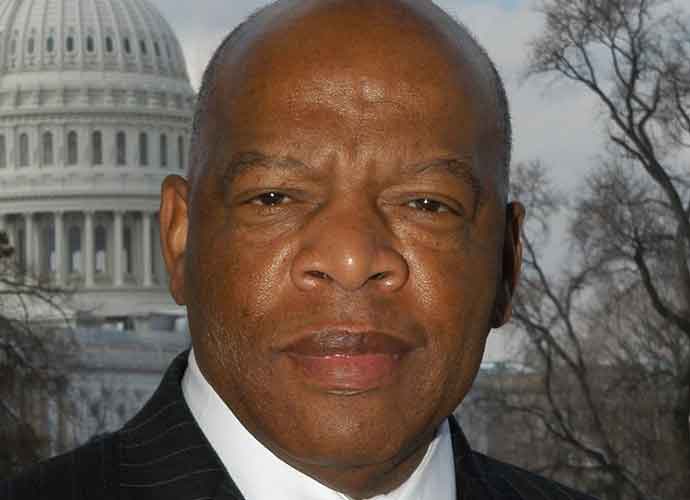Civil Rights Champion Rep. John Lewis Dies After Cancer Battle
Rep. John Lewis (D-Georgia) passed away Friday, leaving behind a legacy of racial justice advocacy and nonviolent resistance to oppression.
Lewis, one of the original Freedom Riders, had his skull cracked when he participated in the 1965 march from Montgomery to Selma, when he crossed the Edmund Pettus Bridge as part of a peaceful Civil Rights demonstration that ended with violent retaliation by the police.
The Congressman had announced at the end of December he had been diagnosed with Stage 4 pancreatic cancer. He was 80 years old.
Lewis became known as the “conscience of Congress,” and consistently voted for legislation that supported basic human rights.
Subscribe to our free weekly newsletter!
A week of political news in your in-box.
We find the news you need to know, so you don't have to.
During the House’s impeachment of President Donald Trump, Lewis’ comments underscored his philosophy of justice.
“When you see something that is not right, not just, not fair, you have a moral obligation to say something,” he told the House. “To do something. Our children and their children will ask us, ‘What did you do? What did you say?’ For some, this vote may be hard. But we have a mission and a mandate to be on the right side of history.”
He lived to watch the Civil Rights movement come full circle, with demonstrators taking to the streets in recent weeks to protest the police killing of George Floyd and systemic racism against Black communities.
“It was very moving, very moving to see hundreds of thousands of people from all over America and around the world take to the streets – to speak up, to speak out, to get into what I call ‘good trouble,’” Lewis told CBS This Morning in June. “This feels and looks so different. It is so much more massive and all-inclusive.” He added, “There will be no turning back.”
Former President Barack Obama awarded Lewis the Presidential Medal of Freedom, the nation’s highest honor for civilians, in 2011.
“Generations from now, when parents teach their children what is meant by courage, the story of John Lewis will come to mind — an American who knew that change could not wait for some other person or some other time; whose life is a lesson in the fierce urgency of now,” Obama said at the ceremony.
Obama remembered Lewis as an exceptional man who “saw the best in all of us.”
“Born into modest means in the heart of the Jim Crow South, he understood that he was just one of a long line of heroes in the struggle for racial justice,” Obama said in a statement. “Early on, he embraced the principles of nonviolent resistance and civil disobedience as the means to bring about real change in this country, understanding that such tactics had the power not only to change laws, but to change hearts and minds as well.
He continued: “In so many ways, John’s life was exceptional. But he never believed that what he did was more than any citizen of this country might do. He believed that in all of us, there exists the capacity for great courage, a longing to do what’s right, a willingness to love all people, and to extend to them their God-given rights to dignity and respect. And it’s because he saw the best in all of us that he will continue, even in his passing, to serve as a beacon in that long journey towards a more perfect union.”
Get the most-revealing celebrity conversations with the uInterview podcast!








Leave a comment